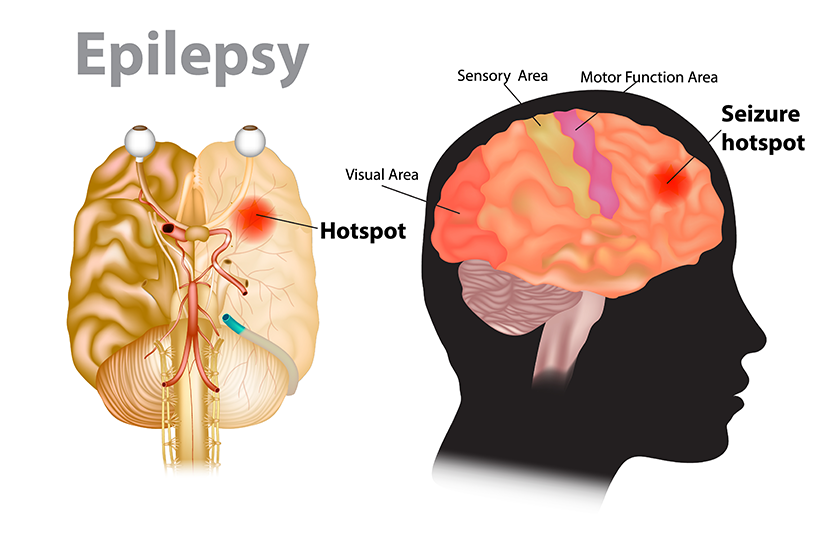Seizures can be a worrisome symptom for individuals diagnosed with Alzheimer’s disease, adding complexity to both care and daily life. As you consider care options for Alzheimer’s, understanding the causes of seizures in Alzheimer’s disease is important for making informed decisions. With the right knowledge and support, managing these challenges becomes more achievable, leading to a better quality of life.
The Connection Between Alzheimer’s Disease and Seizures
Alzheimer’s disease is a progressive neurodegenerative disorder that affects memory, cognition, and behavior. It’s characterized by the buildup of amyloid plaques and neurofibrillary tangles in the brain, which leads to the death of neurons. Research indicates that this brain damage can increase the risk of seizures, especially as the disease progresses into its later stages.
Seizures in Alzheimer’s patients are more common than one might think, with estimates suggesting that between 10% to 22% of patients may experience them. These seizures can manifest in various forms, from mild twitching to more severe convulsions, significantly impacting daily activities and overall well-being.
How Brain Changes in Alzheimer’s Trigger Seizures
The brain undergoes numerous changes in Alzheimer’s disease that can contribute to the onset of seizures. The loss of neurons, particularly in regions like the hippocampus and cortex, disrupts normal brain activity and can lead to abnormal electrical discharges—this is what causes seizures. Additionally, the inflammation and oxidative stress associated with Alzheimer’s can further exacerbate these neural disruptions.
As Alzheimer’s disease advances, these changes become more pronounced, increasing the likelihood of seizures. Understanding these underlying mechanisms is essential for developing effective treatment strategies that address both Alzheimer’s symptoms and seizure management.
Risk Factors for Seizures in Alzheimer’s Patients
Several risk factors may increase the likelihood of seizures in individuals with Alzheimer’s disease. These include:
- Advanced Age: Older individuals with Alzheimer’s are more prone to seizures, partly due to the cumulative brain damage over time.
- Severity of Cognitive Decline: Those with more severe cognitive impairments are at a higher risk of seizures.
- Genetic Factors: Certain genetic mutations associated with Alzheimer’s can also predispose individuals to seizures.
- Previous History of Seizures: Patients with a history of seizures, whether related to Alzheimer’s or not, may have an increased risk.
Understanding these risk factors can aid in identifying those who may benefit from closer monitoring and preventative measures.
Diagnosing Seizures in Alzheimer’s Patients
Diagnosing seizures in Alzheimer’s patients can be challenging, as the symptoms may be subtle and easily mistaken for other Alzheimer ‘s-related behaviors. A thorough medical evaluation, including a detailed history and neurologic examination, is crucial. Doctors may also use electroencephalograms (EEGs) to detect abnormal electrical activity in the brain, which can confirm the presence of seizures.
You and your loved ones need to communicate any unusual behaviors or changes in condition to healthcare providers, as these can provide critical clues for diagnosis.
Managing Seizures in Alzheimer’s Disease
Management of seizures in Alzheimer’s involves a combination of medication, lifestyle changes, and supportive care. Anti-seizure medications may be prescribed, but choosing the right one requires careful consideration of the individual’s overall health and Alzheimer’s symptoms. Some medications can exacerbate cognitive decline, so it’s vital to find a balance that minimizes seizures without worsening Alzheimer’s effects.
Lifestyle modifications, such as maintaining a regular sleep schedule, reducing stress, and avoiding known seizure triggers, can also help. Supportive care, including memory-enhancing activities and physical therapy, can improve overall brain health and reduce the risk of seizures.
How Seizures Impact Daily Life
Seizures can significantly affect daily life for individuals with Alzheimer’s and their caregivers. They may lead to increased dependency, falls, and injuries, as well as heightened anxiety and stress. Understanding the impact of seizures on daily activities is crucial for creating a supportive environment that addresses both physical and emotional needs.
You and your loved ones can benefit from specialized care programs that focus on seizure management, providing peace of mind, and enhancing quality of life.
Creating a Supportive Environment for Alzheimer’s and Seizure Care
Creating a safe and nurturing environment for those with Alzheimer’s and seizures is essential. It involves developing routines, ensuring home safety, and fostering social connections that enhance well-being. A comprehensive care plan that addresses both Alzheimer’s symptoms and seizure prevention can make a significant difference in overall health and happiness.
Our Memory Care community offers personalized care and support for those living with Alzheimer’s and seizures. We are dedicated to creating a nurturing environment where you and your loved ones can thrive with peace of mind and comfort. Let us help you explore care options that are tailored to your unique needs.
Contact us today to learn more about our compassionate approach and how we can support you on this journey.







